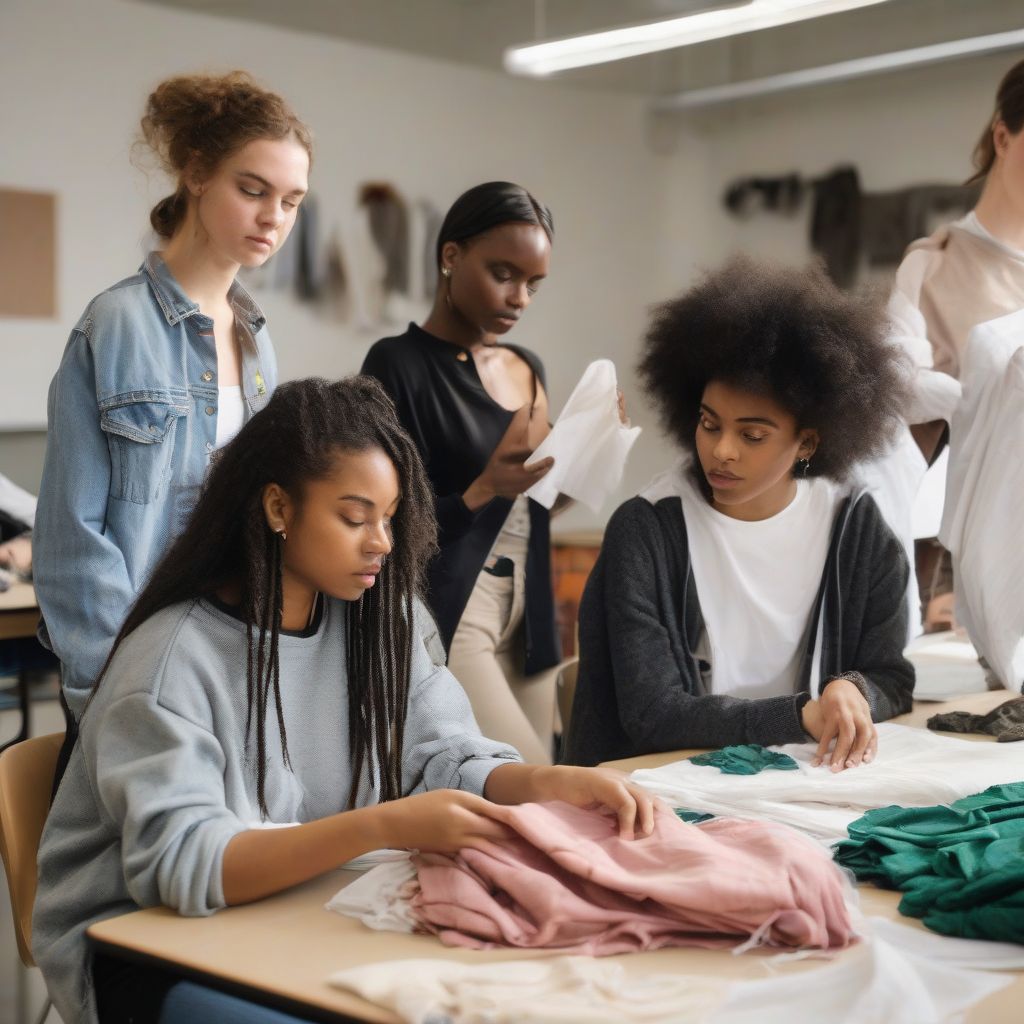Have you ever stopped to think about the journey your clothes take before they end up in your closet? From cotton fields to factories and finally to your wardrobe, the fashion industry has a surprisingly significant impact on our planet. But what if we could change that narrative? What if we could transform the way we perceive, produce, and consume fashion? The answer, my friends, lies in the power of education.
Understanding the Need for Sustainable Fashion
Before we delve into the transformative role of education, let’s take a moment to understand why sustainable fashion is not just a buzzword but a necessity.
The fashion industry, as it stands today, is a major contributor to pollution, consuming vast amounts of water and energy. Fast fashion, with its emphasis on cheap trends, has only exacerbated these issues, leading to textile waste and unethical labor practices.
Sustainable fashion, on the other hand, advocates for an ethical and eco-conscious approach. It’s about minimizing the environmental impact, promoting fair labor conditions, and creating garments designed to last. But achieving this requires a shift in our mindset – a shift that education can effectively bring about.
The Multifaceted Role of Education
Education is not just about imparting knowledge; it’s about fostering awareness, igniting critical thinking, and ultimately, inspiring action. Here’s how education can be instrumental in promoting sustainable fashion practices:
1. Empowering Consumers
Knowledge is Power: By educating consumers about the environmental and social costs of fast fashion, we empower them to make informed choices. When we understand the impact of our purchasing decisions, we are more likely to embrace sustainable alternatives, opting for quality over quantity and supporting ethical brands.
Beyond the Price Tag: Education helps us see beyond the allure of cheap prices and trendy designs. It encourages us to consider the entire lifecycle of a garment – from its raw materials to its disposal – and prioritize transparency and responsible production processes.
2. Cultivating Conscious Designers
Redesigning the Future: Designers hold immense power in shaping the fashion landscape. By integrating sustainability principles into fashion education, we equip aspiring designers with the knowledge and skills to create eco-conscious collections. This includes understanding sustainable materials, adopting ethical manufacturing techniques, and designing for longevity and circularity.
Innovation and Creativity: Sustainability challenges designers to think outside the box, fostering innovation and creativity. It encourages them to explore alternative materials, experiment with upcycling and recycling techniques, and embrace slow fashion principles.
3. Influencing Policy and Industry Practices
Advocating for Change: Education plays a crucial role in driving policy changes and influencing industry practices. By raising awareness about the urgency of sustainability, we can push for stricter regulations on waste disposal, promote fair labor standards, and encourage the adoption of eco-friendly practices throughout the fashion supply chain.
Collaboration is Key: Transforming the fashion industry requires a collaborative effort. Education can facilitate dialogues between stakeholders, including policymakers, industry leaders, designers, and consumers, paving the way for systemic change.
From Classrooms to Communities
The impact of education extends far beyond the confines of classrooms, permeating into our communities and shaping collective action.
Schools as Changemakers: Educational institutions play a pivotal role in nurturing environmentally responsible citizens. By incorporating sustainable fashion into school curriculums, we can educate young minds about conscious consumption, ethical production, and the importance of valuing quality over fleeting trends.
Community Engagement: Workshops, seminars, and awareness campaigns can empower communities to embrace sustainable fashion practices. These initiatives can provide practical tips on clothing swaps, upcycling, and caring for garments to extend their lifespan.
 Sustainable Fashion Education
Sustainable Fashion Education
The Future of Fashion: Weaving Sustainability into the Fabric of Society
The journey towards a truly sustainable fashion industry is ongoing, but education serves as our guiding light. By empowering individuals, fostering responsible design practices, and advocating for systemic change, we can rewrite the narrative of fashion. Let’s collectively weave sustainability into the very fabric of society, creating a future where style and responsibility go hand in hand.
What steps can you take today to embrace sustainable fashion? Share your thoughts and join the conversation in the comments below!
[amazon bestseller=”Sustainable Fashion”]
